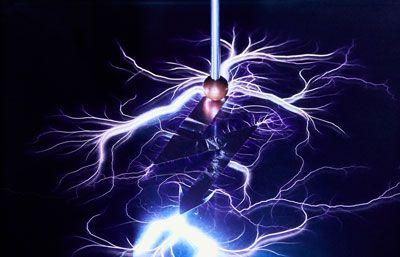 Lapp is researching direct current for industry and is thus announcing the next energy revolution. First pilot projects show the potential of an energy supply with direct current, which can save up to 20% energy. After the company presented the first cables for DC applications last year, it is presenting further versions this year.
Lapp is researching direct current for industry and is thus announcing the next energy revolution. First pilot projects show the potential of an energy supply with direct current, which can save up to 20% energy. After the company presented the first cables for DC applications last year, it is presenting further versions this year.
In factories, in data centers and even in households: Electric energy could be transmitted in the future with direct current or direct current, in short: DC. Advantage: Many electrical loads from the LED light via industrial drives to the electric car actually consume direct current, which previously had to be converted from the alternating current, or alternating current (AC), from the socket. In addition, more and more systems that generate direct current, in particular photovoltaics, are feeding into the increasingly decentralized electricity grid. The conversion between AC and DC will lose up to 30% of energy. Two large lignite-fired power plants could be switched off in Germany and large quantities of CO2 emissions could be saved, if one consistently set to DC.
LAPP supports DC research
An important role is played by the industry. Initial pilot projects, for example in production cells in the automotive industry, show the potential of a DC power supply, which could save up to 20% of energy. Not only the conversion losses would be eliminated, with DC could feed more energy into the grid or energy storage even when braking machines. LAPP dealt with the topic early on and was the first company to investigate whether common AC lines are just as suitable for DC. Most experts said so far: Yes.
The company wanted to know more about it and started a research project in cooperation with Prof. Frank Berger from the Technical University of Ilmenau. LAPP also supports the working group with test leads and test benches. The tests show that the experts were wrong - the electric field of a DC voltage acts differently on the plastic insulation of a line than an AC field. Although it is still too early to make final recommendations, Prof. Berger emphasizes: "It is already becoming apparent that certain materials will actually require different materials under direct current than in alternating current applications." Further, application-oriented tests should provide clarity, among others in DC-Industrie, a project funded by the Federal Ministry for Economic Affairs and Energy, in which LAPP participates as an associated partner.
First DC cables
 The cable specialist has been working on this topic for several years and last year launched the world's first standard cable specifically for DC applications: the Ölflex DC 100. Further Ölflex DC cables will follow at the Hannover Messe 2019, including a cable for the control of servo drives and a cable with TPE insulation, which is particularly suitable for mobile use in energy chains - a choice that was also confirmed by the research results of Prof. Berger is supported. "LAPP is a pioneer in the development of cables for low-voltage direct current networks," emphasizes Georg Stawowy (picture), Chief Technology Officer of LAPP Holding AG. "Our customers can count on our DC cables to meet the same high quality standards as all our products."
The cable specialist has been working on this topic for several years and last year launched the world's first standard cable specifically for DC applications: the Ölflex DC 100. Further Ölflex DC cables will follow at the Hannover Messe 2019, including a cable for the control of servo drives and a cable with TPE insulation, which is particularly suitable for mobile use in energy chains - a choice that was also confirmed by the research results of Prof. Berger is supported. "LAPP is a pioneer in the development of cables for low-voltage direct current networks," emphasizes Georg Stawowy (picture), Chief Technology Officer of LAPP Holding AG. "Our customers can count on our DC cables to meet the same high quality standards as all our products."